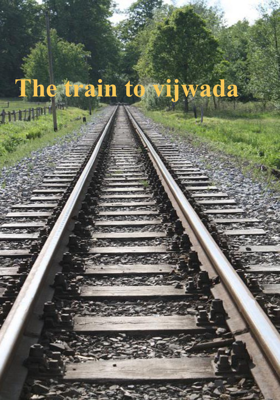Shahid Khudiram Bose
Shahid Khudiram Bose


At a time when teenagers are busy building their careers, our freedom fighters were busy in building the future of our country. They had only one dream - the dream of a FREE INDIA.
Shahid Khudiram Bose was a young revolutionary freedom fighter who fought for our Independence. He was involved in the Muzaffarpur conspiracy and was executed on August 11 in the year 1908, when he was only 18 years old.
He was born on December 3, 1889, in Mohobani, Bengal to Trailokyanath Bose and Lakshmipriya Devi. His father was a Tehsildar in the Nerajol.
He was the fourth child of his parents. Before his birth, his two brothers had died prematurely. At that time, a custom prevalent then, in which a newborn was symbolically sold to his eldest sister in exchange of three handfuls of grains. This custom was known as Khud and supposedly prevented the newborn from dying prematurely. Thus he was named Khudiram after the cultural custom 'Khud'.
However as luck would have it,Khudiram lost his mother at the tender age of six and just the next year, his father died. His elder sister, Aparupa Roy brought him up together with her husband Amritlal Roy, who sent him to Hamilton High School in Tamluk.
In the year 1902 and 1903, Sri Aurobindo and Sister Nivedita gave a number of public lectures and held various private sessions with the active revolutionary groups for India's freedom. At that time, Khudiram was an active participant in the discussions. Later on, he joined Anushilan Samiti and became a volunteer at the age of 15. He was arrested for distributing pamphlets against the British Raj in India.
In 1907, Barindra Kumar Ghosh arranged for his associate Hemchandra Kanungo sothat the later could learn bomb-making techniques in Paris from a Russian revolutionary in exile, Nicholas Safranski.
After coming back to Bengal, Hemchandra and Barindra Kumar collaborated and Douglas Kingsford was chosen as their target, who was the Chief Magistrate of the Presidency Court of Alipore and had overseen the trials of Bhupendranath Dutta and other editors of Jugantar, sentencing them to rigorous imprisonment. He becomes infamous for passing harsh and cruel sentences on young revolutionaries.
Hemchandra constructed a book bomb to kill Kingsford. The bomb was packed into a hollow section of Herbert Broom's Commentaries on the Common Law and delivered wrapped in a brown paper to Kingsford's house by Paresh Mallick, a young revolutionary. Kingsford kept the package in his shelf to examine later. In 1908, Kingsford was promoted to the post of District Judge and was transferred by the government to Bihar. His furniture was also transferred along with him and the book bomb too was transferred alongside.
Khudiram 's revolutionary group, Anushilan Samiti continued in their attempt to kill Kingsford. For this purpose, a two-man team visited Muzaffarpur which included Prafulla Chaki. The later returned with Khudiram Bose and had a bomb with him, which was provided to him by Hemchandra.
The Calcutta police became aware of the conspiracy against Kingsford. Four men were assigned to guard the magistrate's house. The two revolutionaries successfully hid their identities and the CID officer returned from Calcutta with a clearance letter from Superintendent of Muzaffarpur that the two revolutionaries have not arrived.
On April 29, Khudirma and Prafulla pretended to be schoolboys and surveyed the park in Muzaffarpur opposite to the British Club before executing their plan. The park was frequently visited by Kingsford.
On the selected day, Kingsford and his wife were travelling with the wife and daughter of a British Barrister, Pringle Kennedy. The four of them decided to head back home around 8:30 pm in the identical carriages. As soon as the carriage reached the eastern gate of the European Club, the duo (Khudiram and Prafulla) ran towards it and threw the bomb. The daughter-mother duo died within two days while Kingsford and his wife survived.
After the attack, Khudiram and Prafulla managed to escape. This news had spread like wildfire and the whole town was aware of it.Armed policemen were stationed on all rail routes to keep an eye on every passenger. Khudiram, after walking 25 miles, reached a station called Waini. He asked for a glass of water at the tea stall and two constables-- Fateh Singh and Sheo Pershad Singh-- suspected him due to his exhausted appearance. Their suspicion rose after a couple of questions and Khudiram was then detained by the constables. 37 rounds of ammunition, Rs 30 cash, railway map and a page of the rail timetable were found with him.
Prafulla on the otherhand, travelled for a long distance. He was however recognised by Trigunacharan Ghosh, a civilian, who decided to save Prafulla's life. He also arranged a ticket for him to Kolkata. He boarded a train from Samastipur and was on his way to Howrah. Nandalal Bannerjee, a sub-inspector, stuck in a conversation with him and realised that he could be another revolutionary. Prafulla got down to drink water and Bannerjee sent a Telegram to Muzaffarpur Police station informing them about him. He tried to arrest him at Mokamghat station but Prafulla shot himself in the mouth with his revolver when just one round of ammunition was left with him, after a brief exchange of fire.
On May 1, Khudiram was handcuffed and was presented in front of the magistrate. He took full responsibility for the assassination. After he had finished, the dead body of Prafulla arrived at Muzaffarpur. Khudiram identified him and gave the required details.
It was speculated that Khudiram Bose would be spared but on a historical date, the British Judges confirmed his execution. On August 11, Khudiram Bose was hanged to death.
The Legacy of Khudiram Bose however continues to inspire all Indians to live and die for the country.
* In 1965, Khudiram Bose Central College was established in Kolkata, West Bengal. The college offers undergraduate courses in arts and commerce and is affiliated to the University of Calcutta.
* A metro station near Garia in Kolkata is named after him-- Shahid Khudiram Station.
* Shahid Khudiram Bose Hospital-- a hospital is named after him on BT Road near Municipality Park.
* The Muzaffarpur Jail, where he was executed on August 11, 1908, was renamed to Khudiram Bose Memorial Central Jail.
* Shahid Khudiram Siksha Prangan also known as Alipore Campus is established and offers postgraduate courses and is affiliated to University of Calcutta.
* Khudiram Anushilan Kendra is located adjacent to the Netaji Subhash Chandra Bose Indore Stadium in Kolkata.
* Khudiram Bose Pusa railway station-- a two platform station in Samastipur district, Bihar.
* Shaheed Khudiram College at Kamakhyaguri, Alipurduar, West Bengal.
Likewise many colleges, railway stations and roads have been named after him, in order to give him due respect and remember his immortal sacrifice for the service to motherland.
His life has inspired many a films and documentaries.'Main Khudiram Bose Hun', is one such film which showcases his inspiring journey.
Khudiram Bose had sacrificed his life for the freedom struggle. Today as we live in a free India, we would ever remain indebted to our forefathers like Khudiram Bose. It is due to their noble sacrifice and courage, that we are free today.
Jai Hind


























































